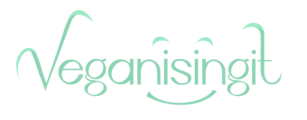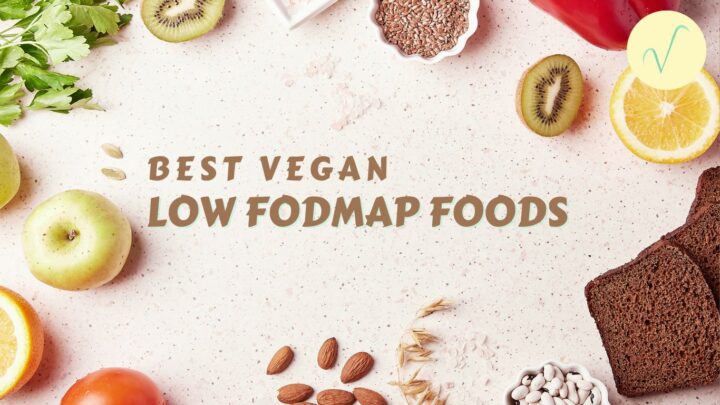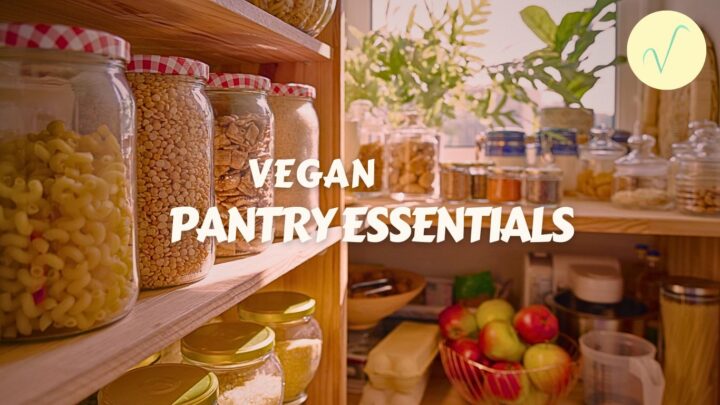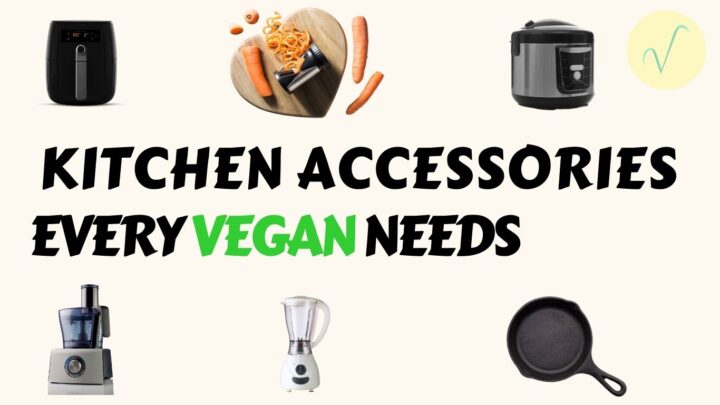B-vitamins hold an array of purposes, from regulation of metabolism to blood cell synthesis and collagen production.
Let’s go through each one, the importance, and a few of the best vegan sources of the nutrient.
Vegan sources of vitamin B-1 (thiamin)
Vitamin B1 is rather abundant in plant-based foods, with quite a few options available.
Flaxseeds
Flaxseeds are a great ingredient when ground up for baking recipes, as well as for protein shake bases or merely sprinkling on top of food.

in merely one ounce of flax seed, you can expect to get 49% of your daily recommended thiamine.
Green peas
Love ’em or hate em, I personally love green peas boiled nicely and drizzled in olive oil and mint.

Being a great source of plant-based protein and iron, green peas also deliver a solid 35% of your day’s B1 per cup.
Brown rice
An alternative to refined white rice, with a significant amount more nutrients overall, it’s no surprise brown rice is a great source of vitamin b1.

You can receive 30% of your day’s thiamine with one cup of cooked brown rice.
Black beans
My favourite kind of bean, well.. a close first with lentils and black eyed peas, blackbeans are also a nutritional powerhouse coming in one small package.

Rich in iron and antioxidants, you can receive 28% of your day’s thiamine in 1 cup of black beans.
What affects thiamine absorption?
Thiamine levels can become low for those with an alcohol dependency, individuals taking certain medications and those with health complications such as AIDs.
Thiamin deficiency is also suffered by those who have their diet based on primarily refined carbohydates, i.e. gluten, white rice, pasta, etc.
A simple way to improve your thiamine levels is to simply incorporate more of these aforementioned foods into your daily diet.
Vegan sources of Vitamin B-2 (riboflavin)
Riboflavin, or vitamin b2, is necessary for growth, general eyesight, and red blood cell production. It works as an antioxidant, and works in conjunction with vitamin B6.
Quinoa
Another vegan superfood, and my personal favourite alternative to rice. Quinoa is rich in an array of nutrients, as well as being a complete protein.

Quinoa boasts a decent 12% Riboflavin in a 1 cup serving.
Avocado
My favourite non-sweet fruit, a commonly shared perspective by vegans worldwide, the avocado is simply a powerhouse of nutrition.

An avocado a day maintains 15% of your Riboflavin needs.
Almonds
Almonds, commonly eaten in India as a “brain food”, Almonds are a a great source of Vitamin E, Calcium and protein.

One ounce of almonds (or about a 28g handful) provides 17% of your daily b2.
White Mushrooms
White mushrooms are great to use in vegan stews, burgers or even omelettes.

With an array of nutrients at its disposal and a general health food; you’re looking at 23% of your Riboflavin in one cup of white mushrooms.
What are the signs of B-2 deficiency?
Considering the importance of this nutrient in conjunction with b6, the following symptoms have been associated with a riboflavin deficiency.
- Tiredness and fatigue
- Digestive concerns
- Mouth sores and cracks
- Sore throat
- Eye sensitivity to light
Vegan sources of Vitamin B-3 (Niacin)
Another one of the 8 essential B-vitamins, niacin is important for energy release from food; as well as for fighting fatique and its use for general skin health and nervous system support
Peanuts
A commonly eaten snack, you may be surprised to know that peanuts are classed as legumes, not nuts.

A mere ounce (28g) handful of dry roasted peanuts provides you with 19% of your daily recommended Niacin.
Potatoes
Some people’s favourite foods, a staple for many, the humble potato is often overlooked when it comes to nutrition.
This is likely due to the main association of it being in crisps, chips, and other fatty potato treats that aren’t exactly the epitome of nutrition.

1 large baked potato provides you with 21% of your daily Vitamin b3.
Whole wheat
Whole wheat is gradually increasing in popularity.
What with the recent findings on refined carbs and how they affect us over time, not to mention the nutritional compromise; Whole wheat is a great way to incorporate Niacin naturally within your diet.

1 cup of whole wheat flour contains 38% of your daily Niacin, easily incorporate it into a healthier, homemade bread recipe.
Wild rice
For those who want to go back to nature, consuming rice in its most natural form.
Considering this type of rice has the least refinement, it goes without saying this wild rice is also nutritionally superior.

That being said it wouldn’t come as a surprise to you that a 1 cup serving of cooked wild rice provides a decent 11% of your daily recommended vitamin b6.
What can affect vitamin B-3 absorption?
Much like with the case of vitamin b1 (thiamine), alcoholism is heavily associated with vitamin b3 deficiency.
Other medications can interfere with the body’s ability to utilise b3. So if you aren’t currently on medication and can control your drink, you should be fine with introducing these foods into your diet for a boost!
Vegan sources of vitamin B-6 (pyridoxine)
Also known as Pyridoxine, vitamin B-6 is a water soluble vitamin that can’t be produced in the body, and must be added through diet.
It’s especially important for the metabolism of protein, fat and carbohydrates.
Wheat germ
The embryo of the wheat seed, wheat germ is a very nutrient dense ingredient which is high in zinc as well.
A 28g serving, which you can sprinkle on top of porridge, it’s got a malty taste, provides 18% of your recommended B-6.
Squash
A nice change of pace from the typical potato varieties, winter squash is both alkaline and rich in a range of nutrients.

One of which being b-6, providing 13% of your daily recommended intake in one cup’s worth of roasted squash.
Bananas
Proving to be notorious for provision of potassium, you’d be surprised to know that the vitamin b-6 content in a banana is much more significant than that of its potassium.
1 large banana provides a solid 25% of your day’s b-6. Add one to your cereal or make a homemade banana smoothie today!

…Or you could eat two for breakfast and only have to worry about the other 50%.
Sunflower seeds
One of my favourite vegan fat sources to snack on, the humble sunflower seed is usually not mentioned much when it comes to nutrition.

However, in just a mere ounce of sunflower seed kernels you’d get a decent dose of copper, zinc and a significant 19% of your daily vitamin b-6.
Best vegan sources of B-7 (biotin)
Biotin is a well-known vitamin known for its role in the regulation of hair growth and skin health.
A water-soluble nutrient also very important in pregnancy and breast feeding, as well as your skin, hair and nail growth.
Sweet potatoes
Rich in an array of nutrients, and one of my favourite sides to put in the oven, the sweet potato is a great source of biotin.
1 cup’s worth of sweet potato reels in 29% of your daily intake.
Onion
Added to many things, but often overlooked for its nutritional profile, onions are a great way to incorporate biotin into the diet.

1 cup of chopped onion contains 27% of your daily intake. This can easily be incorporated in a vegan onion ring recipe or a basic tomato onion salad.
Cauliflower
If you liked cauliflower buffalo wings as much as me then you’d love to hear that one cup’s worth could provide you with 5% of your daily b-7.

Easy to get carried away with them too, so that’s good to know!
Tomatoes
Tomatoes are well known as a plant-based source of vitamin C, as well as being a source of Beta-carotene.
But did you know you could get a quarter of your day’s Biotin with just one cup of tomatoes?

You do now. 1 cup of tomatoes provides you with 24% of your day’s biotin (so almost a quarter). Now go make that tomato and onion salad!
Almonds
I always reach a cross-roads when it comes to the comparison of Walnuts and Almonds, and which one is my favourite.

Considering they’re both nutrient-dense and equally as tasty. But in this case we’re talking almonds, and merely a 1/4 cup serving of fresh almonds provides a whopping 49% of daily biotin.
What affects biotin Absorption?
Those who already suffer from existing nutritional deficiencies may find trouble absorbing the Biotin you need.
Another more direct factor that negatively affects Biotin absorption is a surplus of Avidin – a glycoprotein found in egg whites.
This protein binds to biotin and is resistant to pancreatic enzymes, and so the biotin, once binded, cannot be broken down as efficiently.
This eventually, if long-term, may result in a deficient state for an individual. Yet another reason to go vegan eh?
Best vegan sources of Folate (Vitamin b9)
Folate is an important nutrient not as well-known as say, Iron, Zinc or Vitamin C, but is important, nonetheless.
Vegans in particular may be wandering how they can get their plant-based folate, or omnivores looking to educate themselves on the best sources. This post will cover a few good plant-based sources of folate.
Most of these are inexpensive and pantry-friendly, and a good range to add to the shopping list.
Lentils
1 cup of cooked lentils provides you with a significant 90% of your daily folate. Lentils are my favourite legume for many reasons.

They’re high in Folate, as well as zinc, protein and iron, and are versatile; a legume that can be the base of a vegan burger, or a curry.
Try our red lentil curry today.
Chickpeas
Another legume rich in folate, covering you with 71% of your daily recommended amount in one cup’s worth.
Chickpeas are one of the easiest, most versatile legume I know of, and therefore an easy-to-source folate form.

You can enjoy chickpeas in a vegan hummus, falafel recipe or even a vegan omelette made from gram (chickpea) flour!
Buckwheat
Although the title is deceiving, buckwheat is actually a gluten free grain, great for burger bases, as a rice substitute (although does tend to mush), or as a wheat alternative.

1 cup of cooked buckwheat gives you 13% of your daily recommended folate.
Spinach
Popeye said it first. Well not really, he used to have canned spinach, but in this case, we’re talking about raw spinach.

1 cup of raw spinach leaves, say, eaten in a salad, provides you with 15% of your day’s folate.
Oranges
One of my favourite fruits, the orange is another popularly overlooked fruit for its nutritional profile.

Despite vitamin C, it can provide you with 10% of your day’s folate.
Mangoes
In my top ten of fruit, or top 20 to be honest. Who doesn’t love a mango?

You’d be happy to know that one contributes to 7% of your daily recommended folate.
Walnuts
A great source of plant based omegas, protein and plant based fat.

You can enjoy an ounce of walnuts knowing that you’d be getting 7% of your recommended folate.
Why is folate important?
Folate plays a role in the formation of red and white blood cells, bone marrow and energy metabolism.
It is especially important for its role in the metabolism of bone marrow, and for pregnant women, infants and adolescents.
Vegan vitamin B-12
Vitamin b-12 is a big topic that brings a lot of controversy, especially when it comes to speaking about the vegan diet in association with it.
Many meat eaters love to pull the argument from their back pocket regarding veganism and the inevitable lack of b-12 from our diet.
Here’s some facts.
Where does vitamin b-12 come from?
Vitamin b12 is produced by bacteria. It is synthesised in our gut flora but not absorbed as it is made in the colon.
Bacterial fermentation in the guts of cows, pigs, chickens etc from fortified animal feeds is what makes meat and dairy products, a source of vitamin b-12.
To clarify, vitamin b-12 is from bacteria, which we used to naturally obtain through drinking well water, traces of soil of foods, etc, as a result of an adaptation.
Is meat a better source of vitamin b-12?
Not necessarily, although contrary to popular belief. Vitamin B-12 in animal sources, much like animal protein, is yet another recycled source of nutrients you’d be better off getting from the source.
Even if animals weren’t supplemented, which they are, it makes a lot more sense to take it directly from an organic supplement, than in a piece of meat.
A study published in 2017 highlighted the nutrient deficiencies among individuals with an omnivorous, vegetarian and vegan diet.
The conclusion drawn from this is that all three types of diets, with the adequate supplementation, can fulfil nutrient and vitamin requirements.
The test also went to elaborate on the common deficiencies among meat eaters, one of which including Folate as well as Vitamin C, E and Magnesium. Probably another reason to go vegan.
Do vegans have to supplement B-12?
Yes, for the most part we do. The good thing is that there are so many vegan food options fortified with B-12 already, with a well-planned vegan diet you could hit your daily requirements from enriched foods alone.
Some of these foods include:
- Plant milks
- Nutritional yeast
- Vegan cheeze
My go-to is an organic supplement, made up of fruit and vegetable extracts and no nastiness. I’d much rather take my daily B-12 that way, not to mention it provides 25,000ug of my daily recommended intake.
Vegan sources of B-Vitamins
Hopefully you enjoyed this long post on B-Vitamins and food sources that are obtainable on a vegan diet.
If I included all the foods that applied to each B-Vitamin we’d be here all day, so I’d advise to do some extra research on some of the aforementioned food sources, as a fair majority of them overlap in terms of nutrition.
Just remember: A vegan diet can be very beneficial for your health and well-being, it’s the “well-planned” part you must ensure you take note of.
Any diet unplanned can result in nutrient deficiencies, it’s all about balance, eating to live and making sure you get all you macros. You’d be glad to know that with a vegan diet, you don’t have to worry about B-Vitamins.




